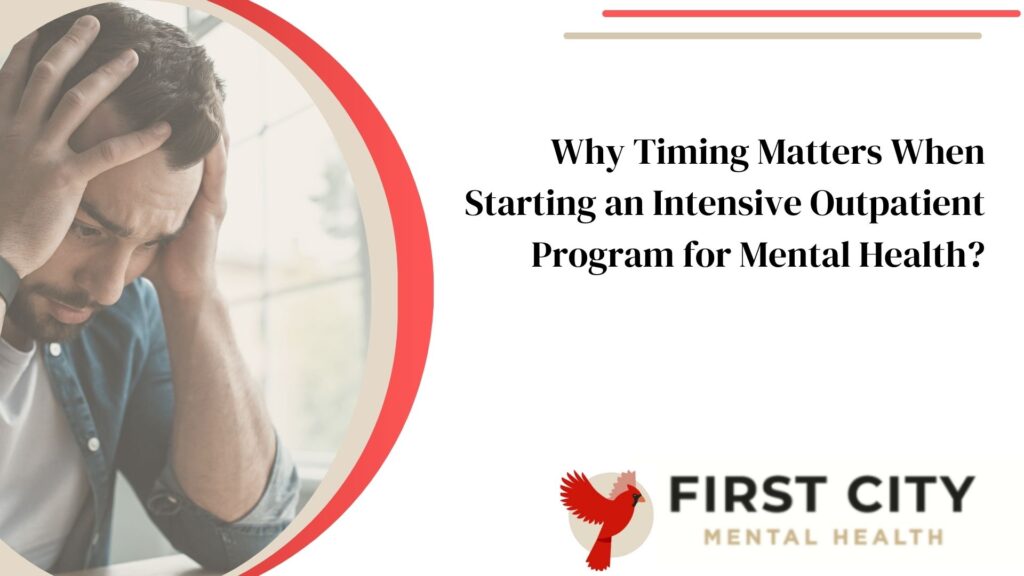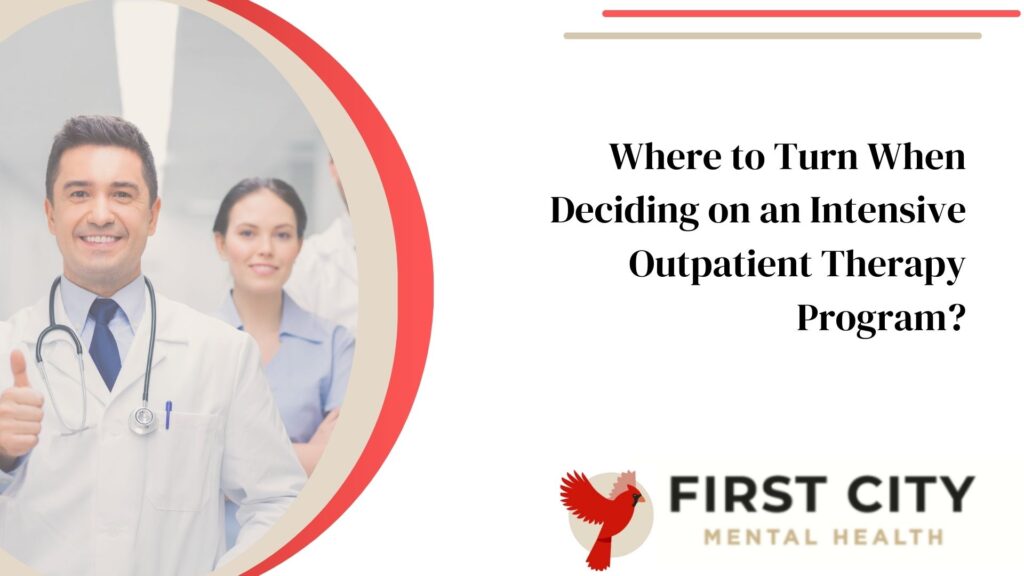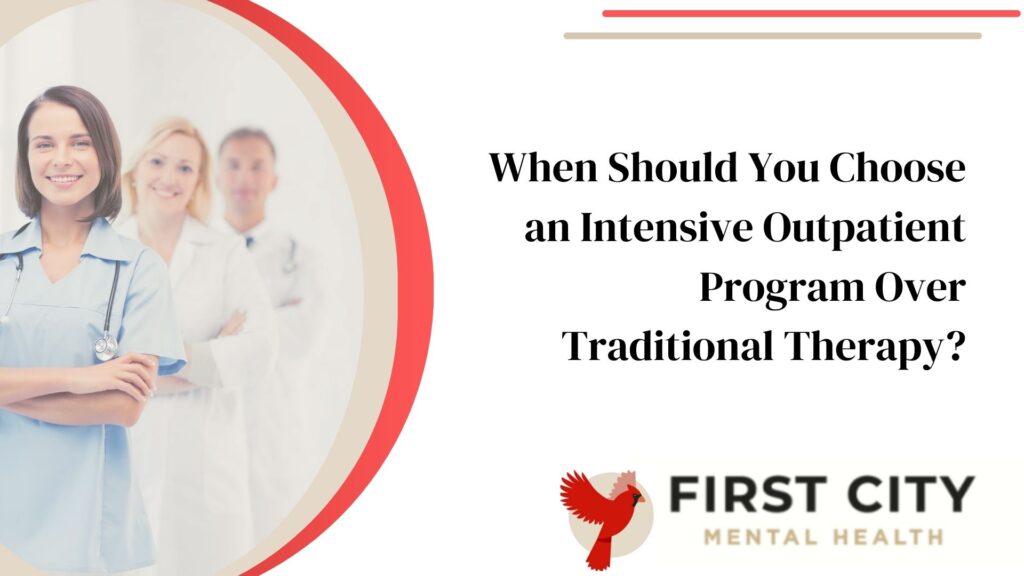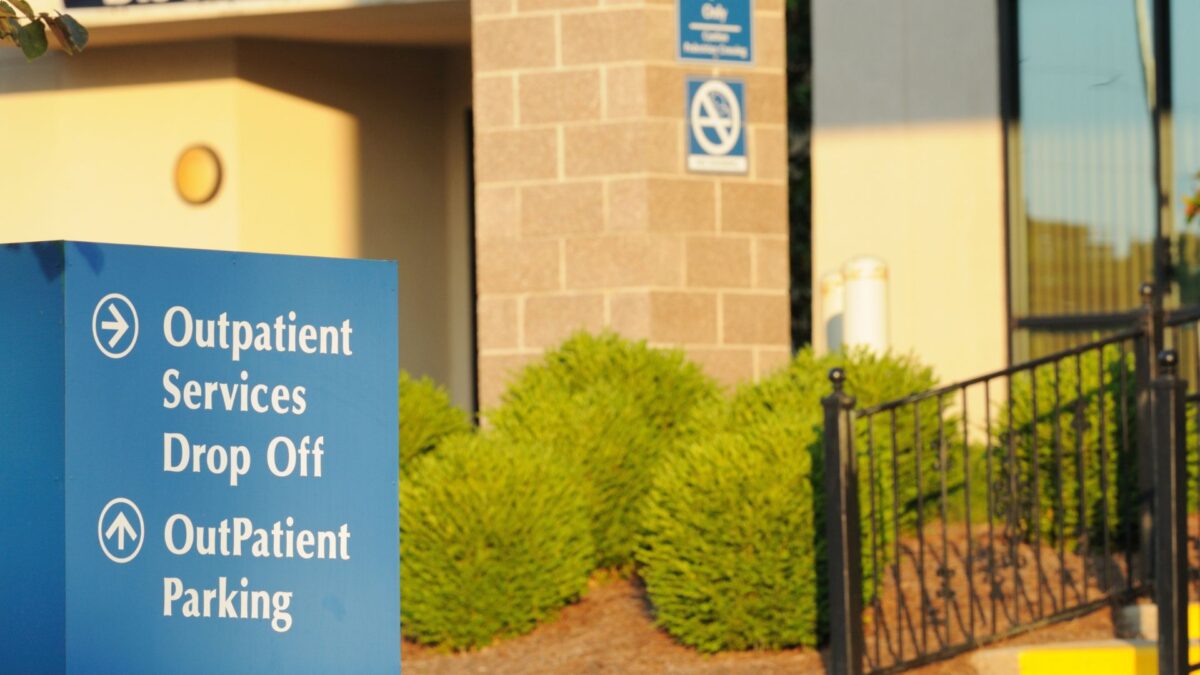
What Is an Adult Intensive Outpatient Program (IOP)?
January 22, 2025
What Services Are Included in Intensive Outpatient Kokomo?
January 22, 2025Struggling with your mental health can feel overwhelming, especially when traditional therapy isn’t enough. You might find yourself constantly battling anxiety and depression or facing a tough time recovering from addiction.
Knowing where to turn for extra support is crucial.
An intensive outpatient Indiana program provides structured treatment while allowing you to continue living at home. This type of program offers more help than regular therapy but doesn’t require hospitalization.
In this blog post, we’ll explore the signs that indicate it’s time for an intensive outpatient program and how to decide if it’s right for you. Ready to learn more?
Key Takeaways
- Consider an Intensive Outpatient Program (IOP) if you need therapy more frequently than traditional weekly sessions, typically 3 to 4 days a week for several hours each day.
- I.O.P.s offer essential support during major life events like after a mental health crisis, significant loss, or substance abuse issues.
- Transitioning from inpatient care to daily life is smoother with I.O.P.s as they provide structured environments and skill-building activities while allowing you to live at home.
What Signs Indicate You Need an Intensive Outpatient Kokomo Program?
Many people face mental health challenges. Recognizing signs early can make a big difference.
- Frequent Therapy Needs: An Intensive Outpatient Kokomo Program (I.O.P.) could be helpful if therapy sessions need to happen more often. These programs provide 3 to 4 days of sessions each week, lasting 3 to 4 hours daily.
- Mental Health Crisis: Experiencing a mental health crisis shows the need for intense help. I.O.P.s offer immediate support and specialized care.
- Struggling with Daily Responsibilities: Are you finding it hard to manage daily tasks, work, or school? I.O.P.s teach skills for handling responsibilities better.
- Behavioral Health Issues: Issues like generalized anxiety disorder or post-traumatic stress disorder might need more than regular therapy. An intensive outpatient program for mental health offers focused treatment and group therapy sessions.
- After Inpatient Treatment: Transitioning from inpatient care but not ready for traditional therapy alone indicates the need for an I.O.P. An adult intensive outpatient program can bridge this gap effectively.
- Withdrawal Symptoms: Managing withdrawal symptoms from substance use requires close monitoring and support, which I.O.P.s provide through structured activities and medication management.
- Co-occurring Substance Use Disorders: Dealing with both mental illness and substance abuse needs coordinated care that I.O.P.s offer through various services, including individual therapy and psychoeducation.
- Supportive Environment Need: Seeking a community that provides consistent support suggests an IOP might be right for you as they foster supportive environments through group facilitators and participants.
- Life Skills Reintegration Help: Difficulty in life skills reintegration after a setback makes an IOP beneficial as it emphasizes learning independent living skills effectively over four to six weeks.
Why Timing Matters When Starting an Intensive Outpatient Program for Mental Health?

Starting an intensive outpatient program mental health at the right time is crucial. Mental health issues can worsen if not addressed promptly. IOP, lasting between 30 to 35+ days, offers more support than traditional therapy and serves as a step down from Partial Hospitalization Programs (PHP).
Delaying treatment might lead to severe consequences, making it harder to recover.
Therapeutic programming occurs 3 to 4 days per week with sessions of 3 to 4 hours each day. Early intervention ensures that individuals receive consistent care before their symptoms escalate.
This timely action helps in better managing conditions like posttraumatic stress disorder through more frequent therapy and group sessions.
When Is It Best to Transition from an Inpatient to an Adult Intensive Outpatient Program?
Timing matters greatly when moving from inpatient care to an Adult Intensive Outpatient Program (I.O.P.). Transitioning works best after completing the Partial Hospitalization Program (PHP) and achieving stability.
Patients then live off-site, either in sober housing or at home.
An I.O.P. provides a structured environment with therapy three to four days a week for three to four hours daily. The program includes individual therapy, group sessions, psychoeducation, and skill-building activities.
This support helps patients reintegrate life skills vital for independent living.
Where to Turn When Deciding on an Intensive Outpatient Therapy Program?

Look for programs with a strong reputation in mental health services. Check if they offer individual therapy, group therapy, and skill-building activities. Make sure the program includes medication management.
Choose an intensive outpatient treatment program that focuses on life skills reintegration.
Research online resources and read reviews of different intensive outpatient therapy program. Speak to healthcare providers about your specific needs. Ensure the program fits your schedule with sessions 3 to 4 days per week, each lasting 3 to 4 hours.
How to Assess If an Intensive Outpatient Program Mental Health Fits Your Needs?
Consider your current living situation. Patients usually live in community housing or their own homes while joining Intensive outpatient program mental health. Assess if you have a stable and supportive home environment.
Think about the type of care plan you need. I.O.P.s offer personal treatment plans that include individual therapy, group sessions, psychoeducation, and skill-building activities.
Check how much time you can commit each week. Patients participate three to four days per week for three to four-hour sessions each day over 30 to 35+ days. Medication management is also available if needed.
An I.O.P. should help maintain daily lives while providing essential support services like life skill reintegration and coping strategies through medical history reviews and face-to-face interactions with highly trained staff members.
What Life Events Should Prompt Considering an Intensive Outpatient Indiana Program?
Major life events might signal the need for more mental health support. Here are some triggers that indicate when to consider an Intensive Outpatient Program (I.O.P.):
- Crisis or Hospitalization: After a mental health crisis or stay in a hospital, an I.O.P. can help manage recovery and prevent relapse.
- Significant Loss: Losing a loved one can lead to severe grief and negative emotions requiring structured support.
- Substance Abuse Issues: Struggling with co-occurring substance abuse and mental health conditions necessitates comprehensive treatment.
- Chronic Mental Health Symptoms: Ongoing symptoms of depression or anxiety affecting daily life may need intensive outpatient services.
- Changes in Living Arrangements: Shifting to community housing or sober living requires additional support, available through IOP.
- Increased Stress at Work or School: People with high-stress levels that impact performance might benefit from the coping skills taught in these programs.
- Relapse After Previous Treatment: Experiencing a setback after other treatments could mean it’s time for more focused care.
- Issues with Medication Management: Trouble managing psychiatric medications effectively requires closer supervision offered by IOP professionals.
- Need for Skill-Building Activities: Learning life skills for independent living aligns well with what an IOP provides.
These events highlight key moments when intensified support is crucial for health and well-being.
Why Early Intervention in an Intensive Outpatient Treatment Program Is Beneficial?
Transitioning after significant life events can be challenging. Quick action in starting an intensive outpatient treatment program (IOP) offers crucial support for mental health concerns.
Early intervention helps individuals manage issues effectively and prevents problems from worsening.
Participation in IOP improves long-term outcomes by addressing needs early on. Increased success rates highlight the importance of timely care, ensuring progress toward recovery goals while promoting stability and overall well-being.
When Should You Choose an Intensive Outpatient Program Over Traditional Therapy?

Choose an Intensive Outpatient Program (IOP) if you need more support than traditional therapy. IOP provides treatment for three hours a day, multiple days a week, which is more intensive than weekly one-hour sessions in traditional outpatient therapy.
For those with co-occurring substance abuse issues or needing structured support without inpatient living, IOP offers a balanced solution. Patients in Fort Wayne and other areas can receive care while continuing daily activities.
When transitioning from hospital stays to everyday life, opt for IOP over traditional therapy. IOP helps adults maintain stability while working toward their treatment goals. The program allows face-to-face interactions with counselors and peers, ensuring privacy and personalized care plans customized to individual needs.
Early intervention within an IOP can significantly improve recovery outcomes by providing consistent support during critical phases of the recovery journey.
Conclusion
Consider an Intensive Outpatient Indiana Program if you need more help than traditional therapy. Start when signs of severe mental health issues appear. The transition from inpatient care if your condition stabilizes but you still need support.
Look for individual and group counseling programs, skill-building activities, and medication management. Early intervention can lead to better outcomes and long-term success.
F.A.Q.s
What is an Intensive Outpatient Program (IOP)?
An Intensive Outpatient Program (IOP) provides higher-level care without requiring a hospital stay. It includes face-to-face interactions, counseling, and aftercare planning.
Who can benefit from an IOP in Indiana?
Adolescents and adults with co-occurring substance issues or mental health disorders can benefit from an I.O.P. Family members often participate in the program, too.
How does recreational therapy fit into an IOP?
Recreational therapy helps patients engage in healthy activities during their treatment. It supports emotional well-being and social skills development.
Can transcranial magnetic stimulation be part of an IOP?
Yes, transcranial magnetic stimulation may be used for clinically excellent care within some intensive outpatient programs to treat certain conditions.
Is there a virtual option for IOPs?
Many providers offer a virtual IOP option, allowing patients to receive care remotely while benefiting from structured support and counseling sessions.






